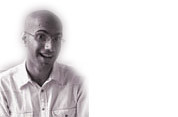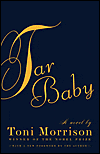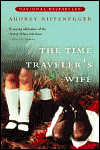Compassion
I just read an article in the New York Times (free registration needed) written by an Indian doctor, Abraham Verghese, who helped refugees of Katrina in San Antonio. It was a very moving essay, more touching than all the waterlogged images on TV.
From the essay:
"I understood that they needed me to ask (about the past five days); to not ask was to not honor their ordeal."
"It reminded me of my previous work in field clinics in India and Ethiopia, where, with so few medical resources at hand, the careful listening, the thorough exam, the laying of hands was the therapy."
How true. He let them vent, he gave them compassion and sympathy. By being a human being first and a doctor later, Dr. Verghese must have provided so many victims their first taste of humanity in a long time.
"I prayed, as I wrote prescriptions, that their memories of particular pills were accurate. "
An interesting side-effect of the disaster that I did not realize until I read it - patients who need regular medication wouldn't have prescriptions, and overwhelmed doctors wouldn't have time to diagnose thoroughly. I just hope that each patient got the right meds - otherwise tragedy and lawsuits might follow.
"I remembered my own metaphor of strapping on armor for the night shift. The years have shown that there is no armor."
This reminds me of something I read in the NY Times after 9/11: "The price of being vulnerable to serendipity and beauty is being vulnerable to ugliness, danger and heartbreak."
From the essay:
"I understood that they needed me to ask (about the past five days); to not ask was to not honor their ordeal."
"It reminded me of my previous work in field clinics in India and Ethiopia, where, with so few medical resources at hand, the careful listening, the thorough exam, the laying of hands was the therapy."
How true. He let them vent, he gave them compassion and sympathy. By being a human being first and a doctor later, Dr. Verghese must have provided so many victims their first taste of humanity in a long time.
"I prayed, as I wrote prescriptions, that their memories of particular pills were accurate. "
An interesting side-effect of the disaster that I did not realize until I read it - patients who need regular medication wouldn't have prescriptions, and overwhelmed doctors wouldn't have time to diagnose thoroughly. I just hope that each patient got the right meds - otherwise tragedy and lawsuits might follow.
"I remembered my own metaphor of strapping on armor for the night shift. The years have shown that there is no armor."
This reminds me of something I read in the NY Times after 9/11: "The price of being vulnerable to serendipity and beauty is being vulnerable to ugliness, danger and heartbreak."





